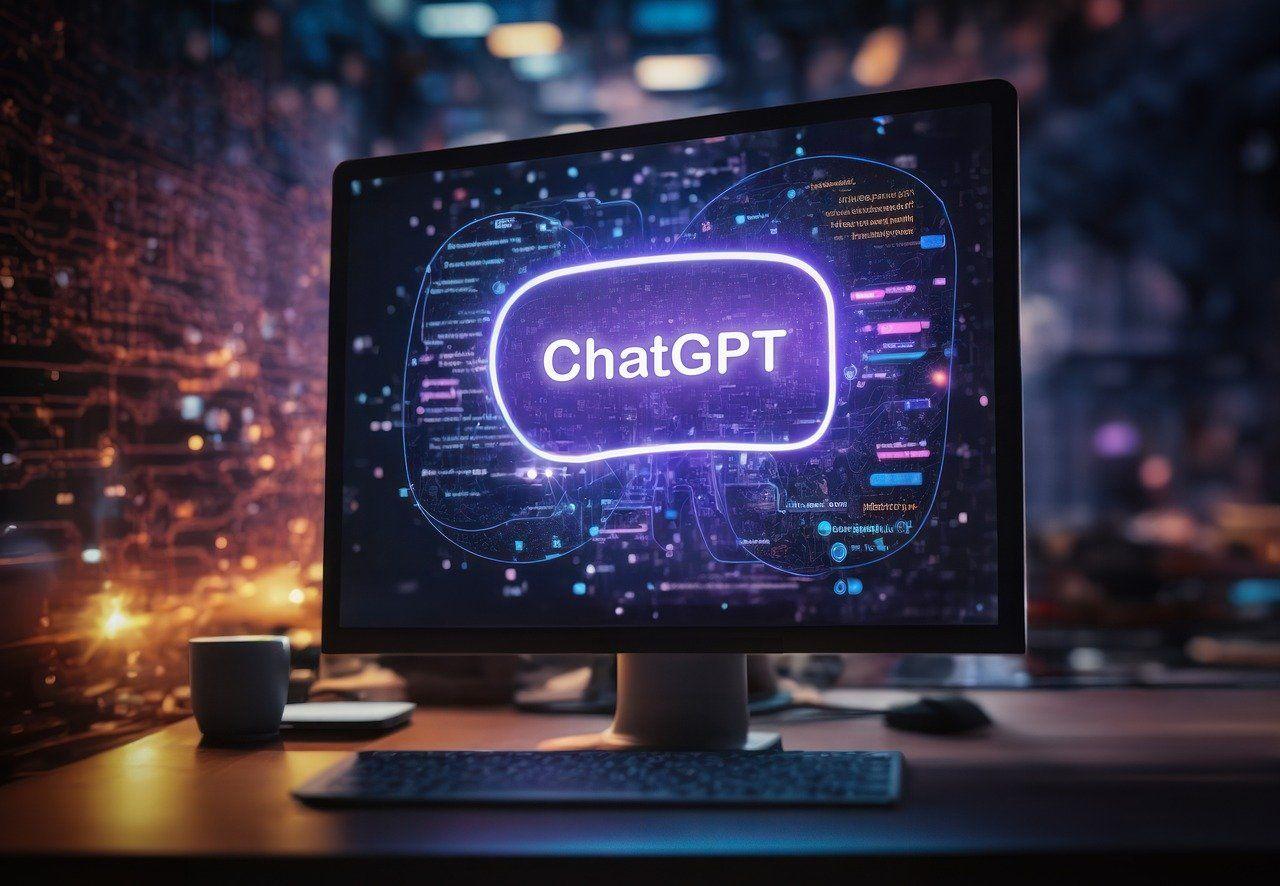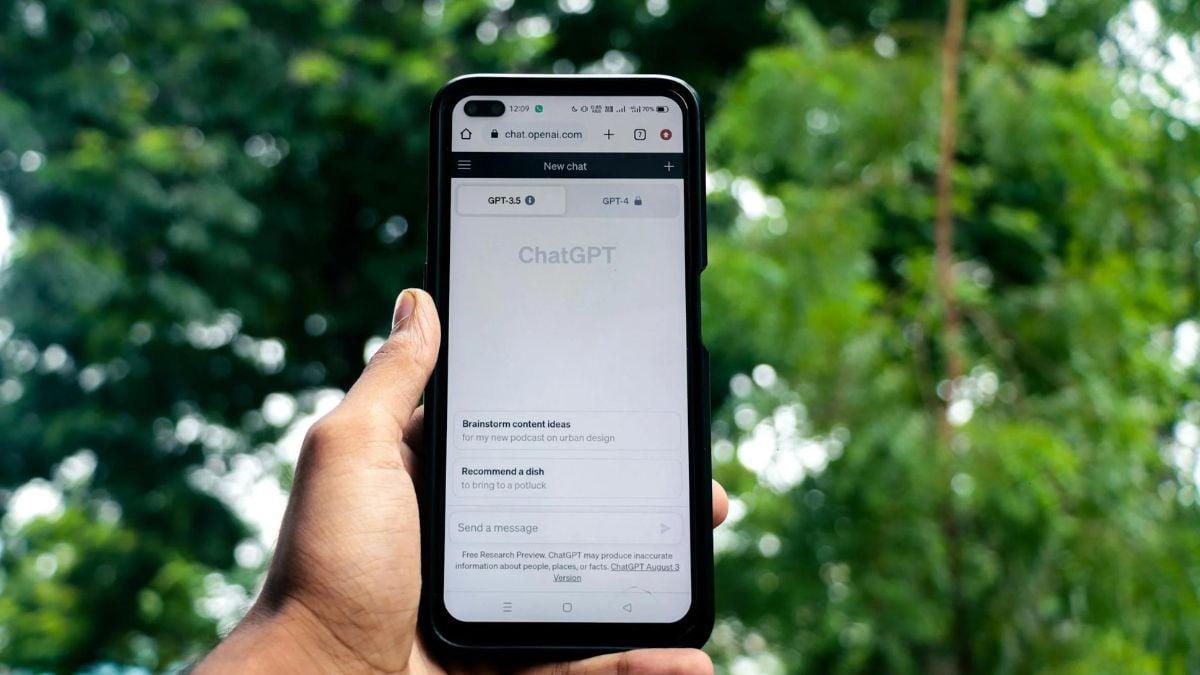OpenAI Explores 'Sign in with ChatGPT' Feature for Third-Party Apps
4 Sources
4 Sources
[1]
OpenAI may soon let you 'sign in with ChatGPT' for other apps | TechCrunch
OpenAI is exploring ways for users to sign in to third-party apps using their ChatGPT account, the company noted on a web page published Tuesday. OpenAI is currently gauging interest from developers who might want to integrate this service into their apps. ChatGPT is quickly becoming one of the largest consumer application in the world, now with roughly 600 million monthly active users. To capitalize on this popularity, OpenAI seems eager to try and expand into other consumer areas, such as online shopping, social media, and personal devices. A potential "Sign in with ChatGPT" feature could help OpenAI compete with other massive consumer technology companies -- such as Apple, Google, Microsoft -- that help people with a wide range of online services, including a quick way to sign in to third-party apps. Earlier this month, OpenAI launched a preview of the "Sign in with ChatGPT" experience for developers in Codex CLI, the company's open source AI coding tool for terminals. The feature let developers connect their ChatGPT Free, Plus, or Pro accounts to their API accounts. OpenAI offered Plus users $5 in API credits to sign in with ChatGPT, and Pro users $50 in API credits. OpenAI seems to be interested in integrating the sign-in service with a broad array of companies. The developer interest form asks for companies to specify their app's user base, ranging from tiny companies with fewer than 1,000 weekly users to massive apps with over 100 million weekly users. The form also asks developers how they charge for AI features today and whether they're customers of the OpenAI API. CEO Sam Altman noted in 2023 that the company may look into a "sign in with OpenAI" feature in 2024. However, it now appears OpenAI is more seriously building out the capability today, in 2025. It's unclear when the sign-in feature would go live for users of ChatGPT or how many companies have signed up to be part of it. OpenAI did not immediately respond to TechCrunch's request for comment.
[2]
OpenAI's ChatGPT could be your new login system
OpenAI is considering allowing users to sign in to third-party applications using their ChatGPT accounts, according to a company web page published on Tuesday. The company is soliciting interest from developers to integrate this service. ChatGPT currently has approximately 600 million monthly active users globally. OpenAI appears to be exploring opportunities to expand into sectors such as online shopping, social media, and personal devices. The potential "Sign in with ChatGPT" feature could position OpenAI as a competitor to companies like Apple, Google, and Microsoft, which offer sign-in services to third-party apps. Earlier in May 2025, OpenAI launched a preview of the "Sign in with ChatGPT" experience for developers in Codex CLI, its AI coding tool for terminals. This feature allowed developers to connect their ChatGPT Free, Plus, or Pro accounts to their API accounts. OpenAI offered Plus users $5 in API credits and Pro users $50 in API credits for using this sign-in feature. OpenAI's ChatGPT just refused to die According to a post on X from user Nick Dobos, a "Sign in with ChatGPT" feature is imminent. Dobos stated, "sign in with chatGPT is about to be EVERYWHERE." OpenAI's developer interest form requests that companies specify their app's user base, ranging from companies with fewer than 1,000 weekly users to apps with over 100 million weekly users. The form also inquires about how developers currently charge for AI features and whether they utilize the OpenAI API. CEO Sam Altman indicated in 2023 the possible development of a "sign in with OpenAI" feature in 2024. The company is now actively developing this capability in 2025. The release date for ChatGPT users and the number of participating companies remain unknown.
[3]
OpenAI Wants to Let You Sign In to Third-Party Apps Using ChatGPT
OpenAI could gain visibility into its users' third-party app usage OpenAI published a form on Tuesday to understand if third-party app developers would prefer their users to sign in using ChatGPT accounts. If implemented, the San Francisco-based AI firm will become an identity provider (IDP) for third-party apps, and let them Open Authorisation (OAuth) via ChatGPT accounts. Notably, the company has already added a similar experience in its recently released Codex CLI platform. Based on the form, OpenAI is gauging interest from smaller apps with fewer than 1,000 weekly active users to larger apps with up to 100 million weekly active users. The interest form is currently live on OpenAI's website. It seeks information such as details of the developer and the app, the app's AI monetisation model, weekly active users, and whether they already use the company's API to power AI features. As mentioned above, OpenAI has already created a similar "Sign in to Codex CLI with ChatGPT" experience, where the users of the terminal can log into the platform using their existing ChatGPT accounts. The company highlights that it shares the user's name, email, and profile picture with the platform, but not the chat history. Last year, OpenAI CEO Sam Altman mentioned in a post on X (formerly known as Twitter) that users had requested the OAuth feature, and the company was planning to build the capability. If the AI firm ends up offering the service to apps, it will join the ranks of Google, Apple ID, Microsoft Azure Active Directory, and Facebook. This move can theoretically bring several strategic advantages to OpenAI as well. By letting users log into other apps with their ChatGPT account, the company can gain visibility into which apps and services its user base engages with and how. This will allow it to personalise ChatGPT or tailor the AI interaction accordingly. Another potential benefit is that developers might also integrate ChatGPT into their apps, either as a sidebar offering (similar to Copilot and Gemini) or via API. This will ensure that users are spending more time within the OpenAI ecosystem. OpenAI will also be able to establish itself as a trusted, secure, and central identity layer for AI-powered apps and build a more recognisable brand identity as a platform company. Additionally, if users use ChatGPT to log into other services, they are more likely to remain logged into ChatGPT, increasing user retention and stickiness for the company. However, these are early days, and we will have to wait before OpenAI formally introduces its OAuth service with third-party apps before the company's larger vision becomes apparent.
[4]
OpenAI Launches 'Sign in with ChatGPT' for Third-Party Apps
OpenAI is exploring ways for users to sign in to third-party apps using their ChatGPT account, according to a web page published recently. The company is asking developers to integrate this login option into their apps. In tests like Codex CLI (a command-line interface for interacting with its AI models), the company allows users to sign in using their ChatGPT account and rewards them with API credits that they can use to access its developer tools. The move could give OpenAI deeper access to user data across platforms, raising new privacy and compliance questions. Corporate lawyer and data governance expert Pundrikaksh Sharma told MediaNama, "Single Sign-On systems (SSOs) using an OpenAI identifier for third-party apps let OpenAI collate granular usage signals. Given how pervasive ChatGPT usage has become, OpenAI may be building behavioural inferences and insights into users' skills or learning patterns. For example, if someone asks ChatGPT about restaurants and then logs into Uber or Zomato, OpenAI can link those signals to better understand user behaviour across services." The feature lets users log in to other apps using their ChatGPT credentials. OpenAI is testing this in Codex CLI . Depending on their subscription, users receive $5 or $50 in API credits upon signing in. These are prepaid units that the users can use to access OpenAI's tools and services. A developer interest form on OpenAI's website invites apps of all sizes, from under 1,000 to over 100 million weekly users, to apply. It asks how developers currently charge for AI features and whether they already use OpenAI APIs. ChatGPT Free, Plus, and Pro users are eligible to use the login, while Enterprise, Education (Edu), and Team accounts are excluded for now. The login shares a user's name, email, and profile picture. These behavioural inferences from past ChatGPT activity could indirectly inform user interactions across other platforms, Sharma warned. As of now, OpenAI hasn't detailed how inferences are handled or whether any profiling protections are in place for data shared across platforms. Dona Mathew from the Digital Futures Lab added that beyond explicit data sharing, ChatGPT's inferences raise separate concerns about transparency and data flow across platforms. "There are risks around how data will be shared with third parties once such an integration happens. Some users have reported the system picking up personal information like location, even when it wasn't explicitly shared in conversations. What happens to these covert data collection practices once data starts flowing between ChatGPT, e-commerce platforms, or messaging apps, especially given how data-hungry generative AI models are? It's important to consider the cumulative impact of ChatGPT's ubiquity on user privacy." India's Digital Personal Data Protection Act (DPDPA), 2023 covers both personal and inferred data, but only when users are clearly informed and provide specific consent. Sharma explained that the DPDPA "hinges on granular notice and consent. Sections 5 and 6 require purpose limitation and specific, informed consent for each downstream use. Inferred data is still considered personal data under the Act, so processing it beyond the login transaction would require a fresh legal basis." He added that OpenAI would likely qualify as a Data Fiduciary (a legal entity responsible for determining how personal data is processed), and potentially a Significant Data Fiduciary because of its large user base and cross-border data transfers. This classification would trigger additional compliance requirements such as data audits, appointing a Data Protection Officer, and ensuring that overseas transfers occur only to approved jurisdictions with contractual safeguards. ChatGPT can infer location information from images alone, without GPS metadata or captions. The model has correctly guessed where a photo was taken by analysing visual cues such as shopfronts, signage, or street architecture, according to user reports. This shows that ChatGPT can build detailed user profiles even without explicit location data. When paired with a cross-platform login system like "Sign in with ChatGPT," such inference capabilities raise the stakes. If OpenAI takes on the role of an identity layer across apps, it extends profiling beyond what users type into ChatGPT. It could also include what they upload or reveal through visuals on other platforms. This expands the surface area for data collection, while keeping most of these mechanisms opaque to users. Mathew also raised concerns about the infrastructure needed to support these integrations. "Data centres, their energy and water usage, and carbon emissions are already central to discussions around AI's societal impacts," she said. She further added that, "We still don't know the full extent of this burden, especially as generative AI expands and more platforms integrate tools like ChatGPT for identity and access. As companies compete to become a central layer in users' digital lives, these systems will require more infrastructure and consume more internet and computing resources. This continues a pattern of resource extractivism." Sharma said Indian developers must: Platform design, data handling practices, and supporting infrastructure shape how users and developers choose to engage with tools like "Sign in with ChatGPT." These factors may directly influence privacy, consent, and accountability. Framing this as a user decision ignores the broader power dynamics. "There's definitely a lot of tension here when it comes to user agency in these matters. On the face of it, it just seems like it is ultimately up to the user to decide if they want to 'sign in with ChatGPT'. But I think it's more complex than that. It's putting the weight of that decision on individuals, while offering incentives like ease and time-saving, even as large tech companies pursue environmentally destructive material infrastructures to keep these digital technologies running," said Mathew. She added that consent mechanisms often fall short. "We've seen how cookies and consent checklists have evolved. Those mechanisms are not entirely effective. And given the pace of tech developments, legal frameworks end up having to play catch-up. Given the human and environmental costs of these systems taken cumulatively, we need more collective thinking, and to also lean on research that scholars across disciplines are already doing on frameworks for transcending the current power dynamics of our digital worlds." OpenAI built safeguards for biosecurity threats. But as its tools begin to mediate access to other digital services, they warrant the same level of scrutiny. As AI shifts from generating content to controlling what users can access, the risks and responsibilities become far more significant.
Share
Share
Copy Link
OpenAI is considering allowing users to sign in to third-party applications using their ChatGPT accounts, potentially expanding its reach and competing with major tech companies in identity management.
OpenAI's New Identity Management Venture
OpenAI, the company behind the popular AI chatbot ChatGPT, is exploring a new feature that would allow users to sign in to third-party applications using their ChatGPT accounts. This move, revealed through a web page published by the company, could potentially position OpenAI as a competitor to tech giants like Apple, Google, and Microsoft in the realm of identity management
1
2
.
Source: TechCrunch
Expanding ChatGPT's Reach
With approximately 600 million monthly active users, ChatGPT has quickly become one of the largest consumer applications globally. OpenAI appears eager to capitalize on this popularity by expanding into other consumer areas such as online shopping, social media, and personal devices
1
. The company is currently gauging interest from developers who might want to integrate this service into their apps, ranging from small companies with fewer than 1,000 weekly users to massive apps with over 100 million weekly users3
.Preview and Incentives
OpenAI has already launched a preview of the "Sign in with ChatGPT" experience for developers in Codex CLI, its open-source AI coding tool for terminals. The feature allows developers to connect their ChatGPT Free, Plus, or Pro accounts to their API accounts. As an incentive, OpenAI is offering Plus users $5 in API credits and Pro users $50 in API credits for using this sign-in feature
1
2
.
Source: MediaNama
Potential Benefits for OpenAI
By implementing this feature, OpenAI could gain several strategic advantages:
- User behavior insights: The company could gain visibility into which apps and services its user base engages with, allowing for personalized AI interactions
3
. - Increased integration: Developers might be encouraged to integrate ChatGPT into their apps, either as a sidebar offering or via API
3
. - Brand identity: OpenAI could establish itself as a trusted, secure, and central identity layer for AI-powered apps
3
. - User retention: If users frequently use ChatGPT to log into other services, they are more likely to remain logged into ChatGPT, increasing user retention
3
.
Privacy and Compliance Concerns
The potential "Sign in with ChatGPT" feature raises important questions about data privacy and compliance with regulations. Corporate lawyer and data governance expert Pundrikaksh Sharma notes that this move could allow OpenAI to collate granular usage signals and build behavioral inferences about users' skills or learning patterns
4
.India's Digital Personal Data Protection Act (DPDPA) of 2023 covers both personal and inferred data, requiring specific consent for each downstream use. OpenAI would likely qualify as a Data Fiduciary under this act, potentially triggering additional compliance requirements such as data audits and appointing a Data Protection Officer
4
.Related Stories
Implications for User Privacy and Data Collection

Source: Gadgets 360
ChatGPT's ability to infer information from various sources, including images, raises concerns about the extent of data collection and profiling. When combined with a cross-platform login system, this capability could significantly expand the surface area for data collection while keeping most of these mechanisms opaque to users
4
.Environmental Considerations
The infrastructure required to support these integrations also raises environmental concerns. Dona Mathew from the Digital Futures Lab points out that the expansion of generative AI and its integration into more platforms will require more infrastructure and consume more internet and computing resources, potentially continuing a pattern of resource extractivism
4
.As OpenAI moves forward with this potential feature, it will need to navigate complex issues of user privacy, data governance, and environmental impact while competing with established tech giants in the identity management space.
References
Summarized by
Navi
[2]
Related Stories
OpenAI launches ChatGPT app store, opening doors for third-party developers to build AI-powered apps
18 Dec 2025•Technology

OpenAI Reportedly Developing Social Media Platform, Potentially Rivaling X and Meta
16 Apr 2025•Technology

OpenAI CEO Warns: ChatGPT Conversations Lack Legal Confidentiality
26 Jul 2025•Technology

Recent Highlights
1
ByteDance's Seedance 2.0 AI video generator triggers copyright infringement battle with Hollywood
Policy and Regulation

2
Demis Hassabis predicts AGI in 5-8 years, sees new golden era transforming medicine and science
Technology

3
Nvidia and Meta forge massive chip deal as computing power demands reshape AI infrastructure
Technology





